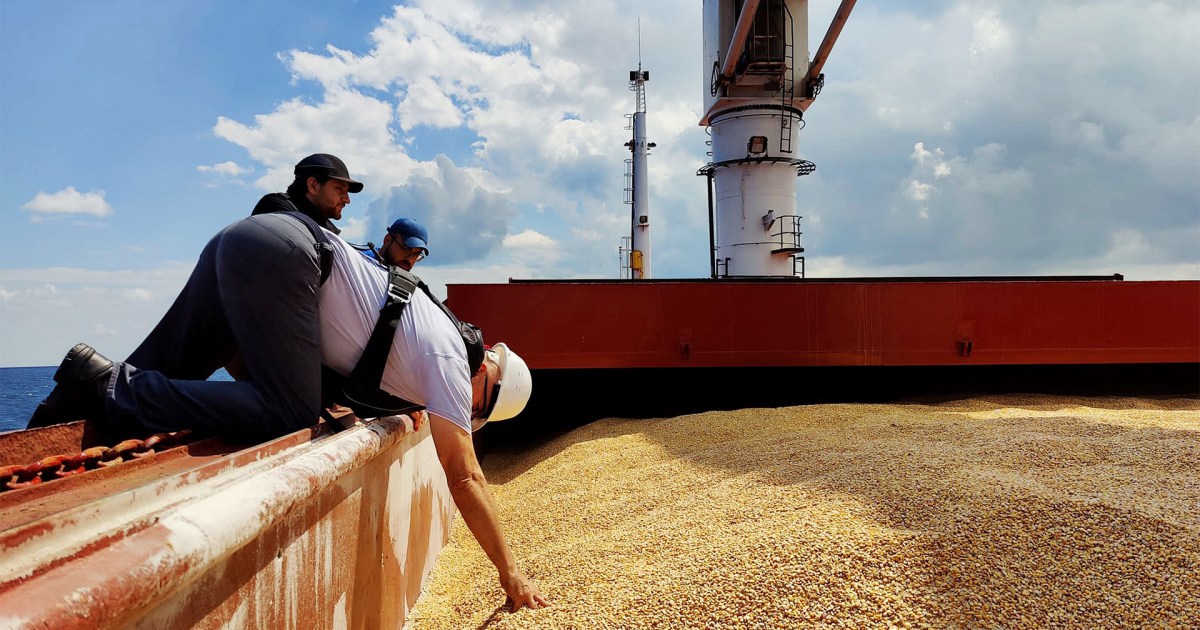In this regard, Ali Bakir, professor of international relations at Qatar University, explained - in his speech to the "Scenarios" program (04/08/2022) that the Istanbul Agreement came as a result of unremitting Turkish diplomatic efforts to create a situation of mutual profit for all parties, bridge the trust gap, as well as ensure the continuity of the agreement. However, historical experience confirms that there are no absolute guarantees with the Russian side, which may be able to threaten the agreement if its interest ends with it.
He also described the agreement as being historical due to the rise in wheat prices, as many countries are living under pressure, "but this agreement will limit this rise and reduce inflation, although it is not considered a fundamental solution to the global food crisis, especially if the Russian-Ukrainian war continues for a long time." ".
For her part, Sofia Monsalve Suárez, a member of the International Group of Experts on Sustainable Food Systems, indicated that the international community will monitor the Istanbul Agreement, because impeding access to food in the current crisis leads to serious violations that threaten food security.
Monsalve considered that the success of this initiative depends on the possibility of the international community ensuring a way to give priority to the countries that need these grains more than others, considering that launching the issue of export may not help solve the crisis significantly because it will be sent to specific countries and will not go towards countries suffering from famine. Like Yemen.
On the other hand, Fadel Al-Zoubi, a food security expert at the Geneva Center for Studies, considered that good intentions and monitoring mechanisms, whether Turkish or international, are insufficient to give guarantees for the implementation of the agreement, but the objective and logical conditions of each party necessitate the success of the agreement.
He also clarified that Ukraine urgently needs to export the accumulated quantities of grain before the next harvest because it does not have sufficient infrastructure to store the crop for two consecutive years.
As for Russia, it has sanctions that prevent the use of major tankers to export fertilizer and foodstuffs from its ports.
Crisis relief
The Secretary-General of the United Nations, Antonio Guterres, had expressed his hope that the first shipment would open the way for more shipments of grain in the coming days and months, and would constitute a real breakthrough in a food crisis that casts a shadow on importing countries of Ukrainian crops, including many Arab countries.
It is noteworthy that the Ukrainian grain exports that have resumed are considered essential to global food security, and the Arab countries importing wheat are among the most affected by the repercussions of the war on food prices, which are taking an upward trend.
Egypt is at the forefront of importers, as it imports 70% of its wheat needs from Russia and Ukraine.
As well as Algeria, which is the second largest importer of wheat in Africa after Egypt and the sixth largest importer of grain in the world.
Algeria's annual imports of grains, including both types of wheat, amount to about 7 million tons, with a bill of more than two billion dollars annually. Tunisia also relies heavily on Ukrainian wheat, which constitutes about half (48%) of its total wheat imports.
As for Morocco, it imports a third of its wheat needs from Russia and Ukraine.
In total, Arab countries account for more than 38% of Ukrainian wheat destined for export.

